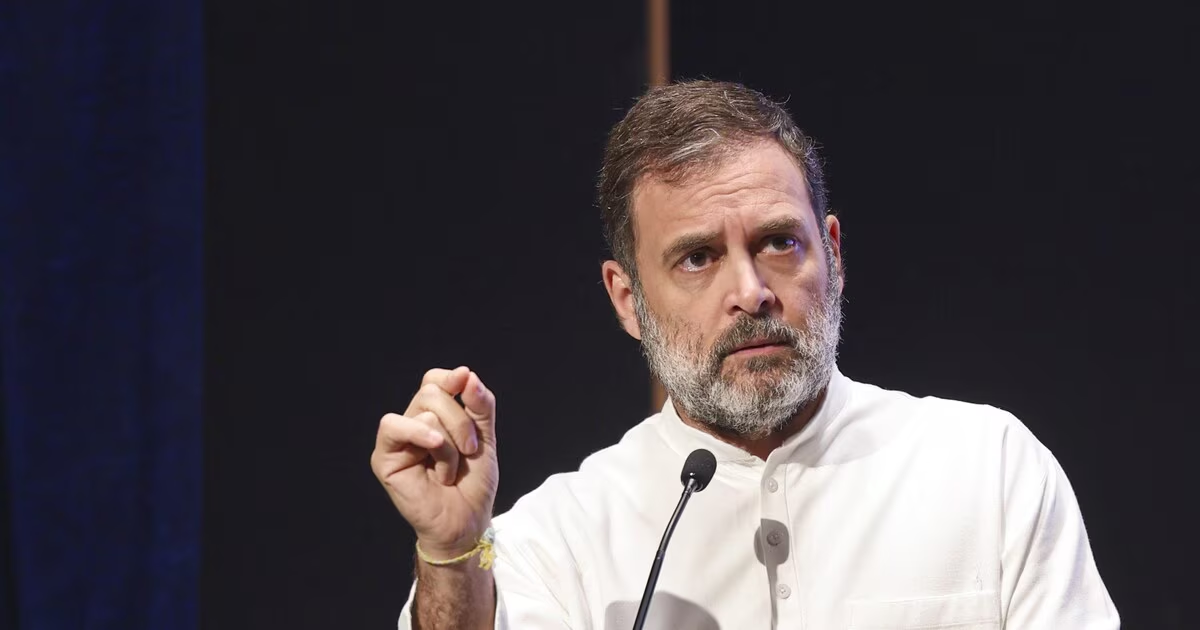
A New Battle for India’s Political Narrative
Rahul Gandhi’s Allegations Against BJP and RSS: Institutional Capture
Rahul Gandhi has accused the BJP and RSS of capturing key institutions in India, claiming that their dominance threatens the integrity of Indian democracy. In a speech at the inauguration of Congress’s new headquarters in Delhi, Gandhi accused the ruling party of manipulating the system to consolidate power.
His remarks were made in response to RSS Chief Mohan Bhagwat’s statement about India’s “true Independence,” which Bhagwat linked to the completion of the Ram Temple in Ayodhya. Gandhi’s criticism centered on the RSS’s continued attempt to shape India’s history and Constitution according to its own narrative.
Mohan Bhagwat’s Independence Remark Creates Political Divide
Mohan Bhagwat’s remarks, claiming the Ram Temple consecration represented India’s true Independence, have sparked outrage in political circles. Gandhi expressed disbelief at this assertion, calling it a betrayal of India’s freedom movement. He argued that such remarks undermine the sacrifices of freedom fighters and the historical significance of 1947.
The debate has intensified, with Gandhi declaring that Bhagwat’s statement would be considered treasonous in any other country. He stressed that the RSS’s revisionist narrative attacks the Constitution as a symbol of freedom.
Congress’s New Headquarters: A Symbol of Democratic Struggle
The Congress party’s new headquarters, inaugurated during this political firestorm, has become a powerful symbol of the party’s commitment to India’s democratic and constitutional values. Gandhi underscored that the building represents more than just a physical space; it is a reflection of the resilience and sacrifice of those who have fought to protect India’s democracy.
BJP President JP Nadda Strikes Back
In response to Gandhi’s comments, BJP President JP Nadda launched a vigorous counterattack, accusing Congress of aligning with “Urban Naxals” who aim to tarnish India’s global reputation. Nadda’s statement painted Congress as a party that is actively trying to destabilize India, arguing that their criticisms of the RSS and BJP were motivated by frustration and political expediency.
Nadda’s rhetoric reflected the BJP’s effort to reclaim control of the political narrative, casting themselves as the defenders of India’s sovereignty and progress.
Cultural Nationalism vs. Secularism: A Growing Rift
The ongoing clash between Congress and BJP highlights a widening rift between cultural nationalism and secularism. While the BJP promotes a vision of India deeply rooted in its cultural and religious identity, Congress stresses the importance of a secular state committed to democratic principles.
This ideological divide is poised to intensify as the 2024 elections draw nearer, with both parties seeking to capture the electorate’s attention with their contrasting visions for India’s future.
Looking Ahead: The Battle for India’s Political Future
The heated exchange between Rahul Gandhi and JP Nadda signals the ongoing battle for India’s political soul. As both parties gear up for the elections, it remains to be seen which side will resonate most with voters and what role India’s democratic ideals will play in shaping the future of the nation.
India’s Ideological Crossroads
With both the Congress and BJP staking their claims on India’s future, the political divide between them has never been more pronounced. Rahul Gandhi’s critique of the BJP and RSS, and Nadda’s retorts, underscore the deepening polarization that will define the 2024 election season. As these ideological battles continue, India’s political landscape is set for a crucial turning point.